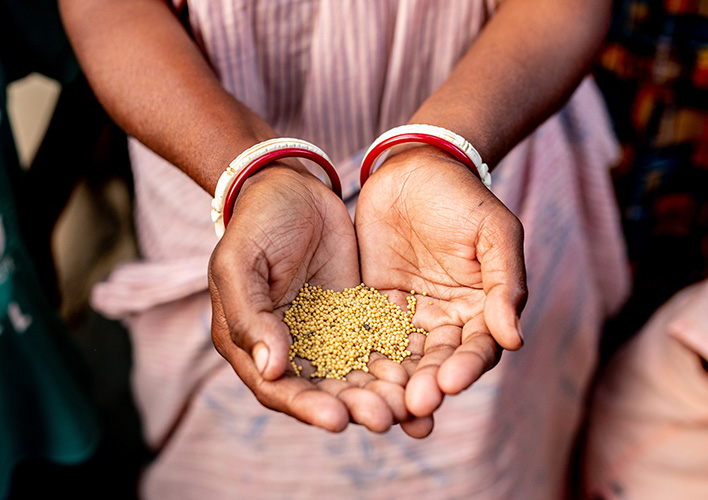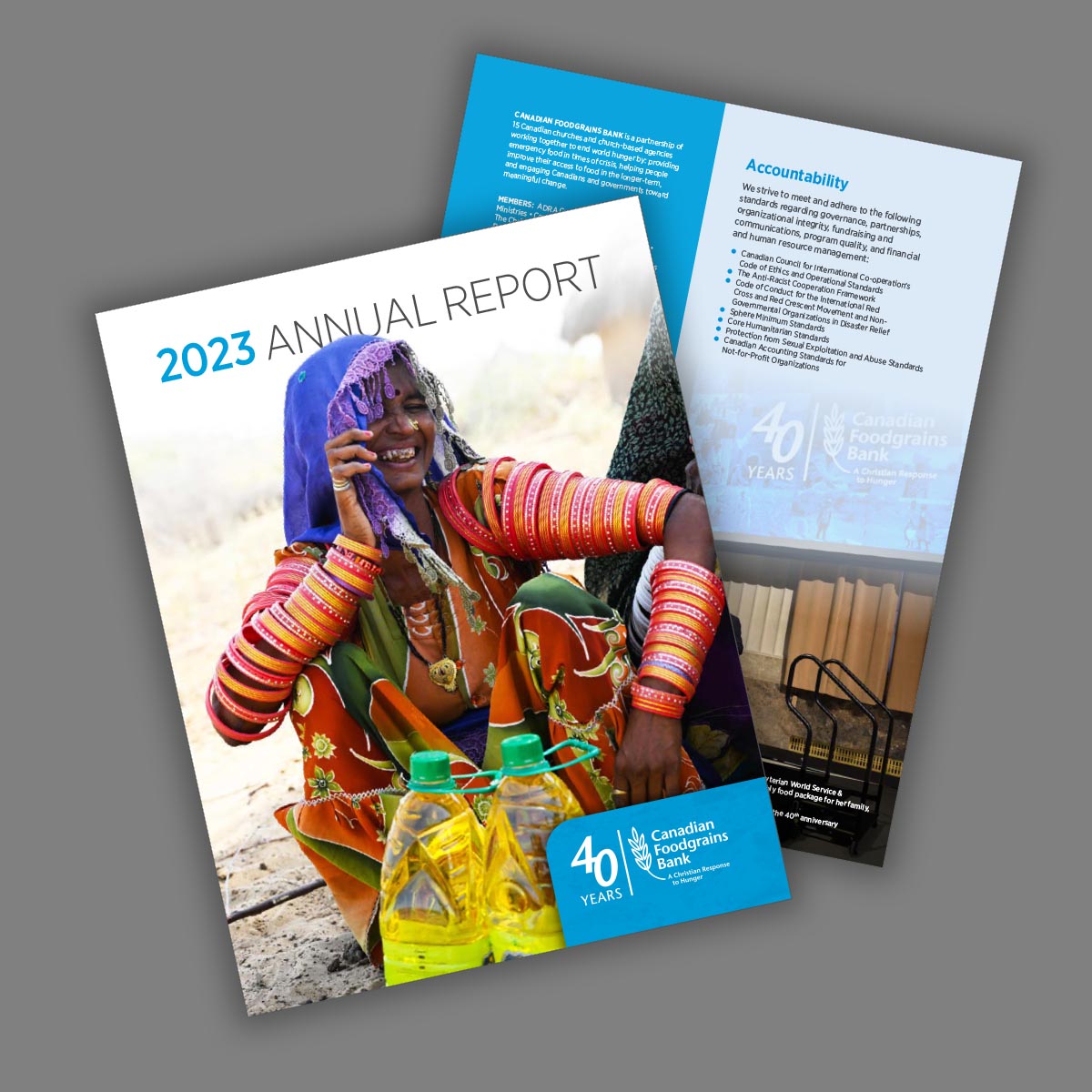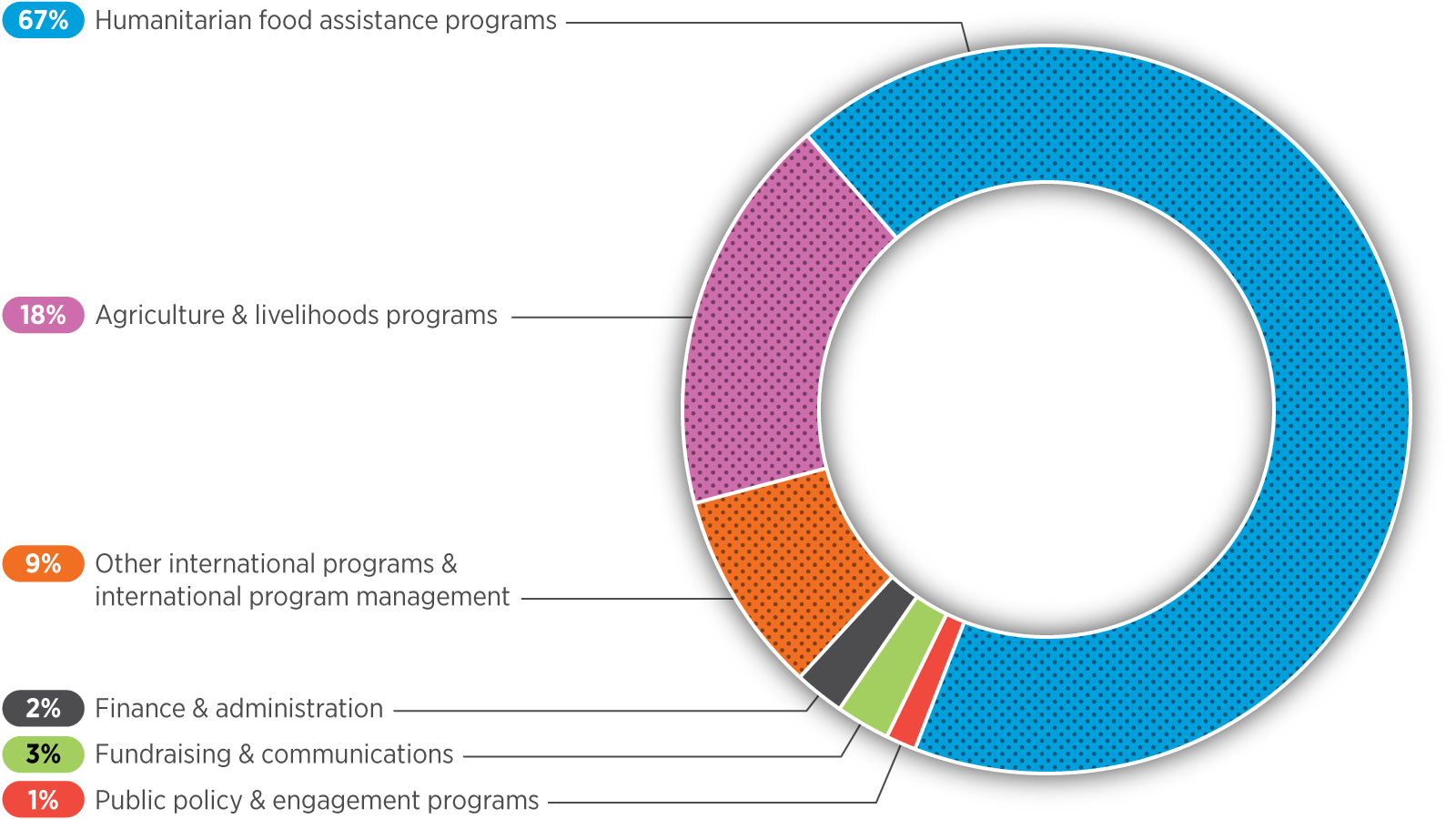Financial Accountability

Our commitment to financial transparency
Canadian Foodgrains Bank has always made open financial transparency a key principle of our organization. We are committed to accounting for every penny donated to our agency and tracking how it is used in our efforts to end world hunger. The board has an active audit and finance committee that provides oversight, the accounts are audited by a national audit firm, and financial reviews are conducted of projects in the field. You can also see some highlights from this past year.

Annual reports
In 2022-23, our members provided assistance to 1,103,795 people in 36 countries. This annual report provides a summary of our humanitarian and development work, along with our work to engage Canadians and government decision-makers. Complete details can be seen below.
Some highlights we would like to share
-
See how we spent the money you have entrusted to us
Take a look to see what percentage of our budget we spent on serving people in our mission to end global hunger.

-
Five years of working to end global hunger
BUDGETED 2019-2023 PEOPLE COUNTRIES $ ASSISTANCE 2019 overall 837,000 36 40,000,000 Humanitarian Food & Nutrition 407,299 23 26,000,000 Long-term development 406,573 22 14,000,000 2020 overall 866,000 34 45,774,754 Humanitarian Food & Nutrition 441,943 19 27,371,476 Long-term development 423,778 23 14,027,131 2021 overall 989,000 33 43,013,230 Humanitarian Food & Nutrition 337,031 18 28,360,285 Long-term development 568,324 21 12,500,516 2022 overall 939,447 34 52,500,00 Humanitarian Food & Nutrition 402,072 19 37,130,048 Long-term development 442,373 24 12,590,346 2023 overall 1,103,795 36 79,854,755 Humanitarian Food & Nutrition 617,008 21 57,956,268 Long-term development 343,992 23 14,395,870 -
Here are some tangible numbers from our Emergency Food and Nutrition work
The Government of Canada continued to support our emergency food and nutrition assistance through a multi year grant. In certain emergency situations, we’re keeping people from slipping into disaster levels of hunger by sustaining their immediate access to food.
Some highlights from this Government of Canada supported work in 2022-2023 include:
- Number of crisis-affected individuals who had increased access to food – 227,767
- Number of pregnant and nursing women, boys and girls receiving therapeutic food, supplementary food, and/or micronutrient supplements – 15,360
- Metric tonnes of food distributed – 13,479 metric tonnes (29,716,107 pounds)
- Value of cash and/or food vouchers distributed – $7,157,253
- 773 metric tons of Vitamin A enriched oil and 199 metric tons of iodized salt distributed to 261,064 people
- 3,848 mothers and caregivers were trained in infant and young child feeding practices.
-
Learning from the people who participate in our programs
As a network, Canadian Foodgrains Bank, our members and partners are committed to consistently evaluating the context of where we’re serving to ensure our programming is most effective and reaches people currently living with food security.
The lingering effects of the pandemic and the global hunger crisis have led to incredibly high costs of food, making food less affordable for people experiencing hunger.
In response to rising food prices amidst inflation and economic uncertainty, local partners have adapted their programming to ensure they are able to feed as many people as possible. As concerns over food availability drive changes in program participants’ preferences, we’ve also altered the methods of assistance we provide.
Click here to read more on how we’re learning and adapting as we press on towards a world without hunger.





